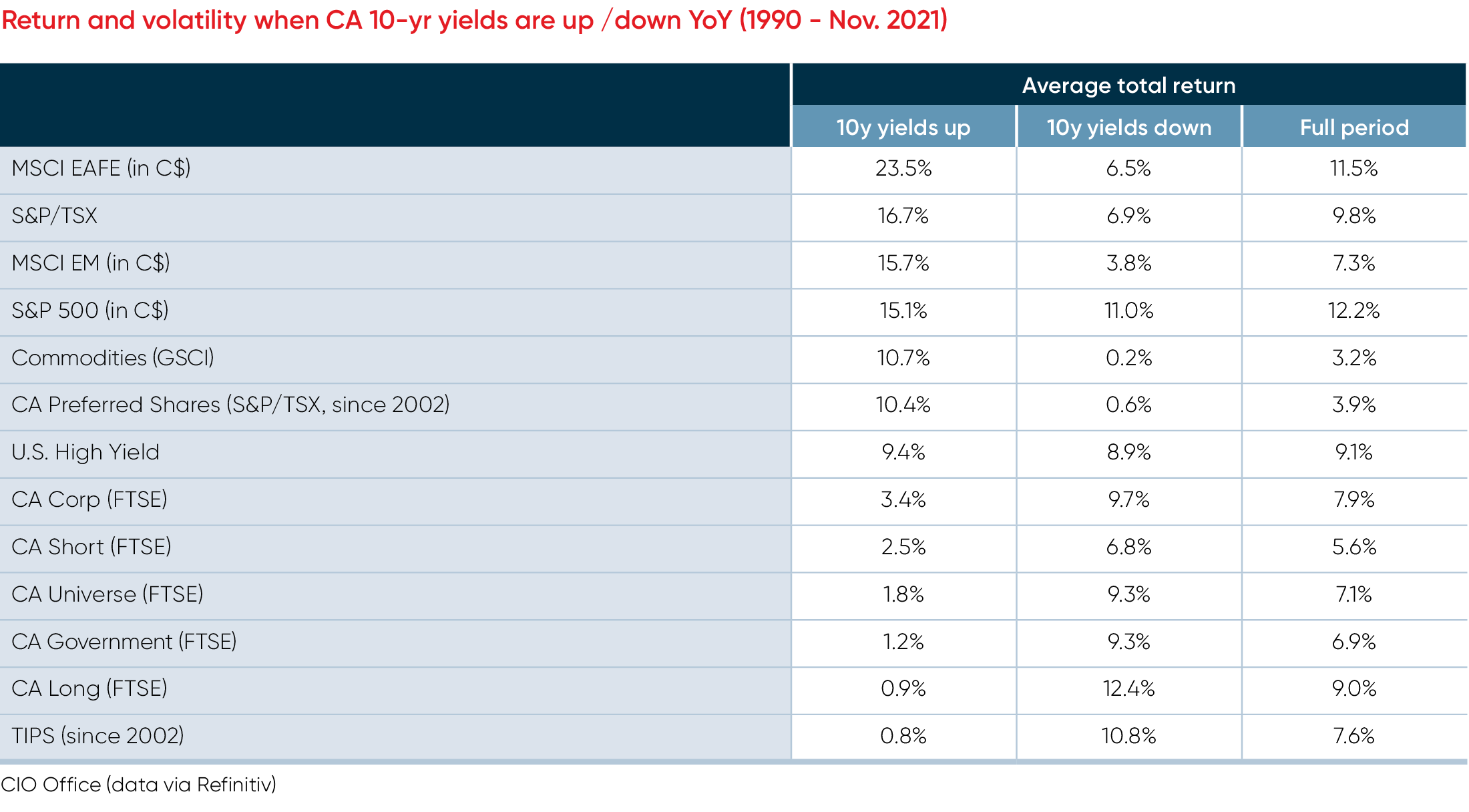With both the Bank of Canada and the Federal Reserve expected to hike rates in 2022, more and more investors are coming to terms with the fact that rising rates are inevitable. How can investors offset the impact of higher interest rates on their investment portfolio?
Taking a page out of recent history
Not all asset classes embody the same characteristics. As such,
investors can mitigate the impact of rising interest rates by
adjusting their allocations across asset classes.
While the table below is in no way indicative of the uncertain future, it gives an idea of how various types of investments have performed in rising and falling interest rate environments.

As shown, equities posted robust gains in rising rate environments
while fixed income securities lagged. This is the case because fixed
income tends to move in the opposing direction of interest
rates.
Don’t sell your bonds just yet
Bonds are an integral component of any diversified portfolio. Not only do they offset the risk that equities bring, but they provide a steady flow of income that can be reinvested as interest rates rise.
As can be seen in the table, fixed income categories such as U.S.
high yield bonds and Canadian preferred shares also boasted strong
returns, suggesting that managing exposure within the fixed income
category may be more viable than selling one’s securities
outright.
The relationship between stocks, bonds and interest rates
When rates rise:
- Equity investors tend to rotate into sectors that benefit from rising rates (i.e., Financials and Consumer Discretionary).
- Companies with large cash reserves will generally benefit as opposed to highly leveraged companies.
- Fixed income securities with shorter duration tend to perform better than those with longer duration.
When rates fall:
- Dividend paying Utilities, REITs and Telecoms tend to be favored
over safer income generating alternatives.
- Highly leveraged companies will generally benefit from lower costs of capital.
- Bond prices rise as newly issued securities are seen as less appealing.
- Longer duration bonds are favoured.
Don’t get too caught up in interest rates
Predicting interest rate movements is a daunting task, but consistently doing so with absolute certainty is the real challenge. What truly matters is maintaining a well-diversified portfolio of asset classes and staying focused on the long-term, regardless of where interest rates are headed!
NBI Funds that are positioned against rising rates
NBI Floating Rate Income Fund
- Monthly income distribution that benefits from stable to growing short term rates.
- Lower interest rate sensitivity than typical fixed income securities.
- Very short duration, which helps protect against rising interest rates
NBI Preferred Equity Income Fund
- Maintains significant exposure to fixed/floating-resets and floating-rate perpetuals, which tend to outperform bonds in a rising rate environment
- Holds preferred shares, which offer a higher yield compared to bonds. This acts as a buffer against falling prices.
NBI Unconstrained Fixed Income Fund
- Benefits from a “go anywhere approach” to investing in fixed income securities worldwide
- May use derivatives and options to mitigate interest rate risks and take advantage of market opportunities.
- Maintains flexibility when it comes to duration positioning (not restricted to replicating a long duration benchmark).


